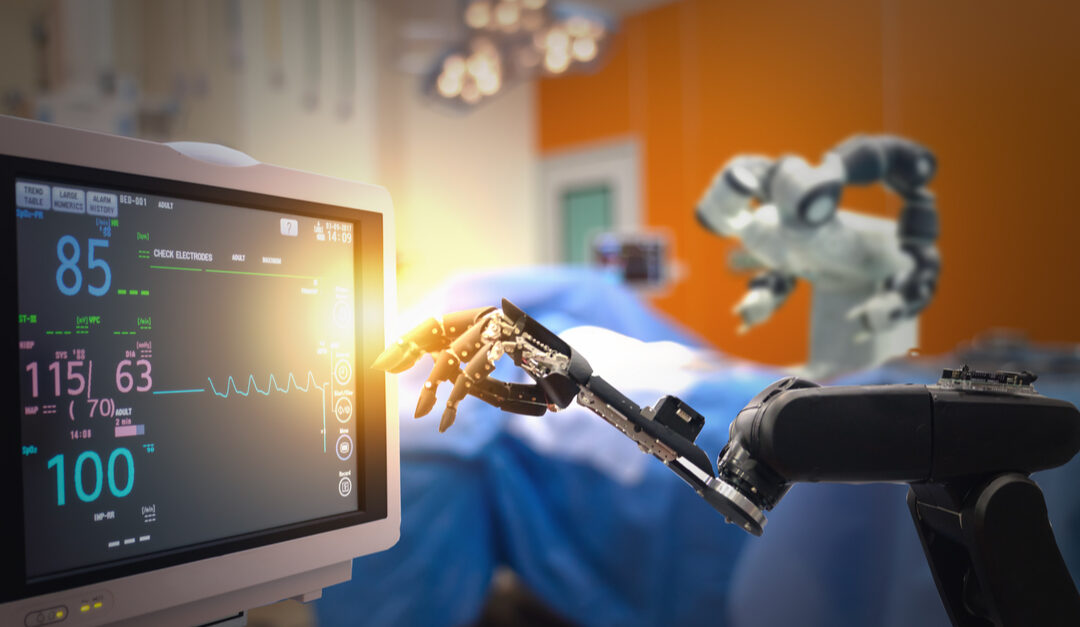Future Trends in Digtal Health
Like so much of our lives, the future of healthcare is digital. Technological advances have given rise to tools that would usually be found in science fiction novels. Now they are helping to diagnose and treat a huge variety of illnesses and improve the quality of life for millions.
Now more than ever we can see the huge advantages of embracing digital health in order to enable people to stay at home and still receive appropriate care for minor ailments and check-ups, or advice on their long-term conditions. In response to the global pandemic, hospitals and GP surgeries are embracing remote appointments and other digital measures to treat their patients and ensure they remain safe and well in their own homes.
So, what is next for digital health? In this article, we will look at the latest trends and future developments that we are seeing in the field of digital health.
AI and machine learning
While the idea of incorporating artificial intelligence and machine learning into healthcare is familiar to some, it has only recently come into its own in terms of reliable and practical applications. Now, we are beginning to see how it can really make a difference.
There has been a recent rise in the use of AI robot assisted surgery, where robots equipped with cameras, mechanical arms and surgical instruments augment the experience, skill, and knowledge of doctors to create a new kind of surgery. Surgeons control the mechanical arms while seated at a computer console while the robot gives the doctor a three-dimensional, magnified view of the surgical site. Robot-assisted surgeries have led to fewer surgery-related complications, less pain, and a quicker recovery time.
Telemedicine
Telemedicine is the practice of administering treatment at a distance with the aid of technology. A doctor in one location can use a telecommunications infrastructure to provide care to a patient in a different building, city or even country.
There are certain telemedicine products such as carts that allow a doctor to assess and recommend treatment for a patient that is then administered by another medical professional in person, or by the patient themselves. There is also a huge range of medical grade computer, monitors and tablets, supplied by companies like Advantech, that are used to connect doctors with their colleagues and patients around the world.
In October 2020 it was reported that surgeons in the UK performed the first medical procedure using a part of glasses equipped with cameras, an earpiece and a torch, allowing them to receive support from specialist surgeons around the world. In the coming months and years we can expect this technology to be refined and rolled out into other areas of medicine, allowing patients and medics to access the expertise, help and treatment of the worlds best doctors and surgeons without having to travel further than their own home or local hospital.
Mobile Apps
With more than 2.7bn smartphone users across the world, it is not surprising that the mobile app market is booming. There are apps aimed at all facets of the healthcare sector, from information repositories like UptoDate to specialist apps like SonoSupport for ultrasound examinations. There are apps for doctors, medical students, and patients, with the NHS App allowing you to book appointments, order repeat prescriptions and access up to date information. You can also consult a GP or health professional through and online form.
In the future it is almost certain that we will see a lot more of these apps dedicated to different long-term conditions, aimed at improving quality of life and gathering data that could help dramatically improve outcomes for patients.
Wearable Technology
Wearable technology has edged into the mainstream, with wearable fitness trackers logging data on our diets, exercise habits and heart health. However, wearable tech is about to take a leap forward with the use of eTextiles. Researchers are using conductive inks embedded in fabrics that react with chemicals released from the skin. It is not a great leap to imagine using this technology in a face mask to aid in the diagnosis and tracking of COVID-19 and other respiratory illnesses.
New advances in wearable technology are likely to be around infection control, with a new trial taking place this month in care homes across the UK to see if wearable digital devices can help reduce COVID-19 infections and deaths. Residents, staff, and visitors in 32 care homes across the country will wear them. This will be compared to another 32 homes not using the technology to determine whether it is more effective than other contact tracing methods.
Technology in the healthcare space will continue to develop at a startling pace, expanding our knowledge and potentially saving thousands of lives. While 2020 seems to have been dominated by the coronavirus pandemic it is promising to see that there is still a huge amount of innovation going on in other fields, with the pandemic itself acting as a catalyst for leaps forward in the development and adoption of telemedicine and infection control technology.
How Distec can help
At Distec we offer a range of specialist solutions including medical-grade displays and touchscreens, PCs, interactive kiosks and infection control peripherals. If you are looking for a healthcare technology partner or you would like any more information about our products please get in touch with us here.

